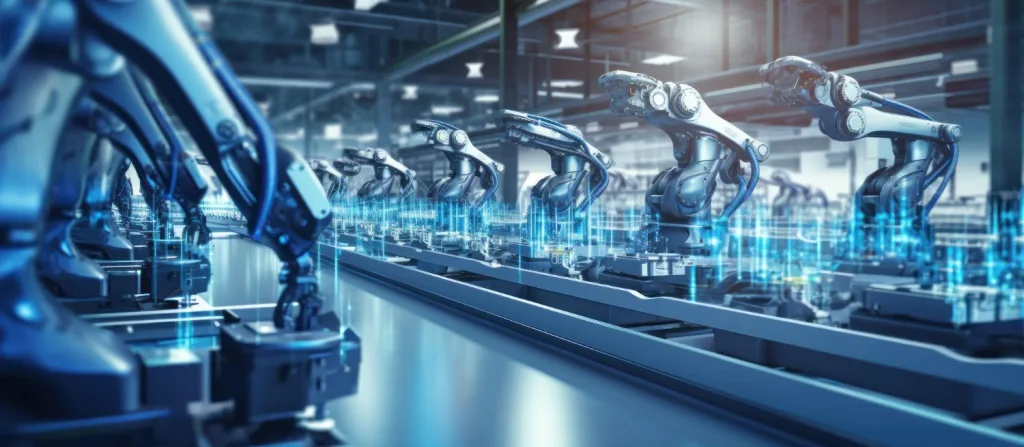Certainly, one can customize processing in generative AI to meet the unique needs of different industries.
Similar to how a tailor alters a suit to fit its owner perfectly, individuals can tweak and refine generative AI to adapt to the nuances of various business sectors. This customization extends to addressing industry-specific challenges and enhancing productivity in areas such as content generation in marketing, design optimization in engineering, or predictive modeling in finance.
Generative AI systems can be developed with specific functionalities tailored to each industry’s requirements.
How can one tailor generative AI to creative industries such as marketing and design?
In creative sectors such as marketing and design, generative AI can automate content creation and provide new perspectives on design processes.
By training on datasets that include high-performing marketing materials or outstanding design elements, these AI systems can generate countless variations, enabling teams to select the most effective options.
Integrating natural language processing enables the creation of engaging and targeted ad copy, while image generation capabilities can produce novel design mockups faster than ever before.
For instance, in graphic design, AI can analyze trends and create visuals that resonate with the current aesthetic preferences of target audiences.
By inputting parameters such as brand guidelines and desired emotional impact, companies can produce bespoke visual content quickly. This helps small to medium-sized businesses stay competitive without hiring large teams of designers.
What customization options are available for generative AI in the finance industry?

Precision and accuracy are paramount in the finance sector. Programming generative AI in finance enables the prediction of market trends, the assessment of risks, and even the development of potential financial products.
By inputting historical financial data into AI algorithms, institutions can simulate market behaviors and outcomes, gaining a degree of foresight previously unattainable for planning.
Additionally, leveraging natural language generation can automate the creation of financial reports, saving time and reducing errors.
One notable customization pertains to compliance with regulations. Given the heavy regulation in finance, configuring AI systems becomes essential to ensure that any generated output, be it investment models or customer-facing documents, aligns with current regulations.
This tailored approach effectively reduces the risk of non-compliance, enabling financial institutions to innovate securely within regulatory frameworks.
In which ways can generative AI support healthcare and pharmaceuticals?

Generative AI is transforming healthcare and pharmaceuticals by tailoring drug discovery and patient care plans.
Analyzing extensive datasets, AI accelerates the identification of potential compounds for new medications. It personalizes patient treatment plans based on medical histories and genetic information, aligning with personalized medicine trends.
Additionally, generative AI simulates clinical trials, providing insights into drug effectiveness with reduced time and costs.
Customization reaches procedural documentation and educational materials. AI plays a role in generating content tailored to healthcare providers’ procedures. It also adapts to patients’ understanding levels, ensuring effective communication.
Can generative AI address unique production challenges in manufacturing?

Yes, in manufacturing, generative AI can be an invaluable asset in addressing production bottlenecks and facilitating rapid prototyping. It facilitates efficient production workflows by simulating assembly processes and suggesting streamlined sequences of operations.
Additionally, specialized machine learning models in materials science can propose new compositions or alterations, enhancing product quality and durability.
AI-generated designs facilitate the rapid creation of custom parts, enabling faster turnarounds to meet niche customer demands. Furthermore, the implementation of predictive maintenance preemptively addresses machine wear and tear, minimizing downtime.
This high level of customization improves the production process and yields superior end products adaptable to customer needs.
Conclusion
Customization plays a crucial role in optimizing the implementation of generative AI in diverse industries. Examples include tailored content creation tools for marketing and predictive analysis in finance.
Additionally, innovative drug discovery methods in healthcare and efficient production designs in manufacturing showcase the versatility of generative AI. These industry-specific solutions address unique challenges.
As generative AI evolves, the potential for specialized applications expands, fostering technological advancement and productivity across sectors.
Explore generative AI possibilities in our pillar article, Processing in Generative AI: From Basics to Implementation.
- The Agentic Startup Manifesto - June 8, 2025
- Remote Hiring in 2025 - April 5, 2025
- Burnout in Remote Teams: How It’s Draining Your Profits - January 27, 2025
